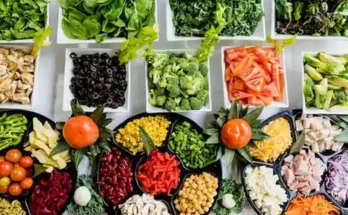Understanding Food Beyond the Plate:
Food is not just something we eat to survive. It is a powerful part of our culture, a reflection of who we are, and a central part of our daily lives. Whether we are grabbing a quick bite before work or sharing a home-cooked meal with family, food influences our health, our energy, and even our emotions.
But in the race to keep up with modern life, many of us have lost our connection with real food. Instead of nourishing our bodies, we often consume whatever is fast, cheap, and convenient. This shift has led to rising health problems, from obesity to heart disease, and a general decline in well-being.
Understanding what we eat, how it is made, and how it affects us is more important now than ever before.
Processed Food vs Real Food:
-
The Hidden Truth Behind Processed Foods
Processed food is everywhere. From boxed cereals and frozen dinners to sugary drinks and packaged snacks, our shelves are full of items that have been altered in factories. These products are typically loaded with added sugars, trans fats, artificial ingredients, and preservatives.
According to the CDC’s official guide to healthy eating, long-term consumption of such foods significantly increases the risk of chronic illnesses such as obesity, diabetes, and heart disease. Over time, these processed items reprogram our palate, reducing our appreciation for the natural complexity of whole foods and pushing us toward addictive, artificial flavors.
-
Real Food Truth
Real food is not just about nutrition. It supports a strong immune system, boosts mood, promotes healthy skin, and reduces the risk of chronic diseases. Eating real food helps you feel full and satisfied, making it easier to maintain a healthy weight without feeling deprived.
The biggest difference between real food and processed food is in how our bodies respond. Real food heals. Processed food harms.
The Mistakes We Make Every Day:
-
Eating Without Thinking
One of the biggest mistakes we make today is eating without awareness. We eat while scrolling through our phones, watching TV, or rushing out the door. This mindless eating leads to overconsumption and poor food choices. We stop listening to our body’s hunger signals and eat more than we need.
Fast food and convenience meals have become the norm. We choose speed over substance and pay the price in our health. Skipping meals, eating late at night, or relying on packaged snacks all disrupt our natural rhythm and digestion.
Another common mistake is not drinking enough water. Many people confuse thirst with hunger and end up snacking when their body simply needs hydration. Water is essential for digestion, energy, and overall wellness.
-
Ignoring Ingredients
Labels can be deceiving. Products that claim to be “low fat,” “sugar free,” or “natural” often contain hidden additives and artificial sweeteners that can do more harm than good. Without understanding what we are putting into our bodies, we fall into the trap of marketing rather than making informed choices.
Many of us also don’t pay attention to portion sizes. Even healthy food can be overeating if not consumed mindfully. Balance is key, and it is easy to forget that when we are used to oversized meals and super-sized drinks.
How to Eat for a Better Life?
Improving your diet does not mean overhauling your life overnight. Start with small, manageable steps—swap processed snacks with fruit, add greens to your meals, and choose water over sugary drinks. These gradual shifts can create powerful, lasting change.
As highlighted in a popular LinkedIn post on sustainable eating by a certified nutrition coach, building a real food habit is not about perfection—it’s about consistency. The message is clear: small daily choices pave the way to a vibrant, energized lifestyle grounded in whole foods and mindful decisions.
Meal planning can also help you stay on track. When you take the time to plan your meals, you are more likely to make healthy choices and avoid last-minute temptations. Keep healthy snacks on hand like nuts, yogurt, or cut vegetables so you are not reaching for chips or cookies when hunger strikes.
Listen to your body. Learn the difference between true hunger and emotional cravings. Sometimes we eat out of boredom, stress, or habit rather than real need. Practicing mindful eating helps you tune in and make better decisions.
Food as a Form of Self-Care:
-
Nourishing
Food has the power to affect not just your physical health but also your mental well-being. A balanced diet can improve focus, reduce anxiety, and boost your mood. Nutrients like omega-3 fatty acids, magnesium, and B vitamins are essential for brain health and emotional balance.
Preparing and enjoying real food can be an act of self-care. It is a chance to slow down, be present, and show your body the respect it deserves. Sharing meals with loved ones strengthens relationships and brings joy into your life.
-
Rebuilding
We need to rebuild our relationship with food. Instead of seeing it as the enemy or something to control, we should see it as a friend. A source of strength and nourishment. An opportunity to care for ourselves in the most basic and beautiful way.
By embracing real food and leaving behind the habits that harm us, we can transform our health and our lives. It is not about being perfect. It is about being aware, being intentional, and being kind to ourselves with every meal.
Conclusion:
Our relationship with food shapes every part of our lives. In a world where convenience often wins over consciousness, it is easy to fall into habits that do more harm than good. But the truth is, real food is not complicated. It is natural, nourishing, and deeply powerful.
Understanding the difference between processed products and whole, unrefined food can be a life-changing realization. Once we start to make small, mindful changes, we begin to feel better, think clearer, and live with more vitality.
Food is not just about eating. It is about healing, connection, and care. By paying attention to what we put on our plates, we take a bold step toward a healthier, more balanced life. No matter your age or your starting point, it is never too late to eat well and feel your best.
Let your food be your foundation, your fuel, and your daily act of self-respect.




